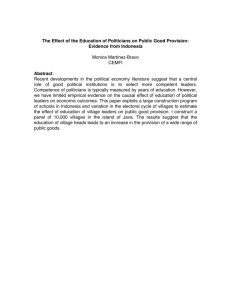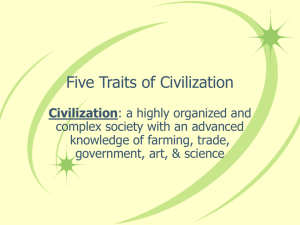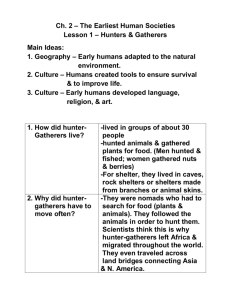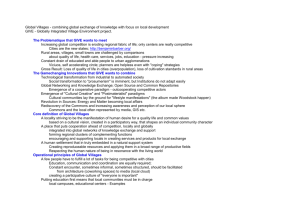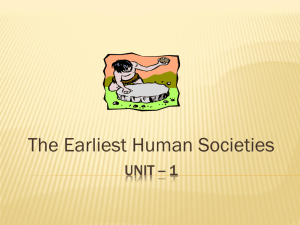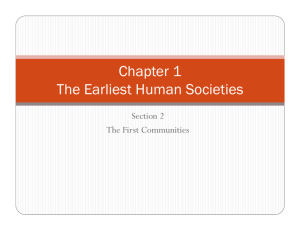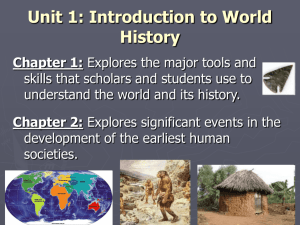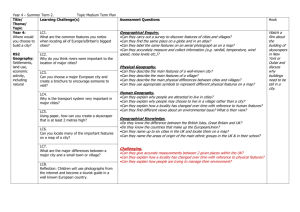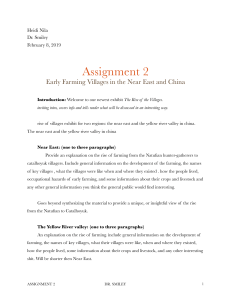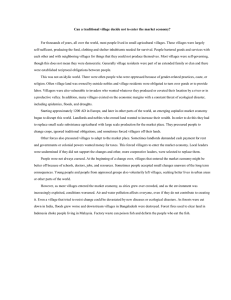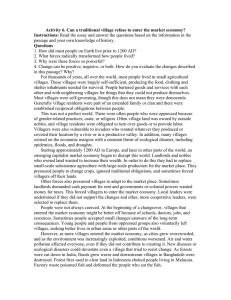Filled in Notes 15-16-The Earliest Human Societies Chapter 1
advertisement
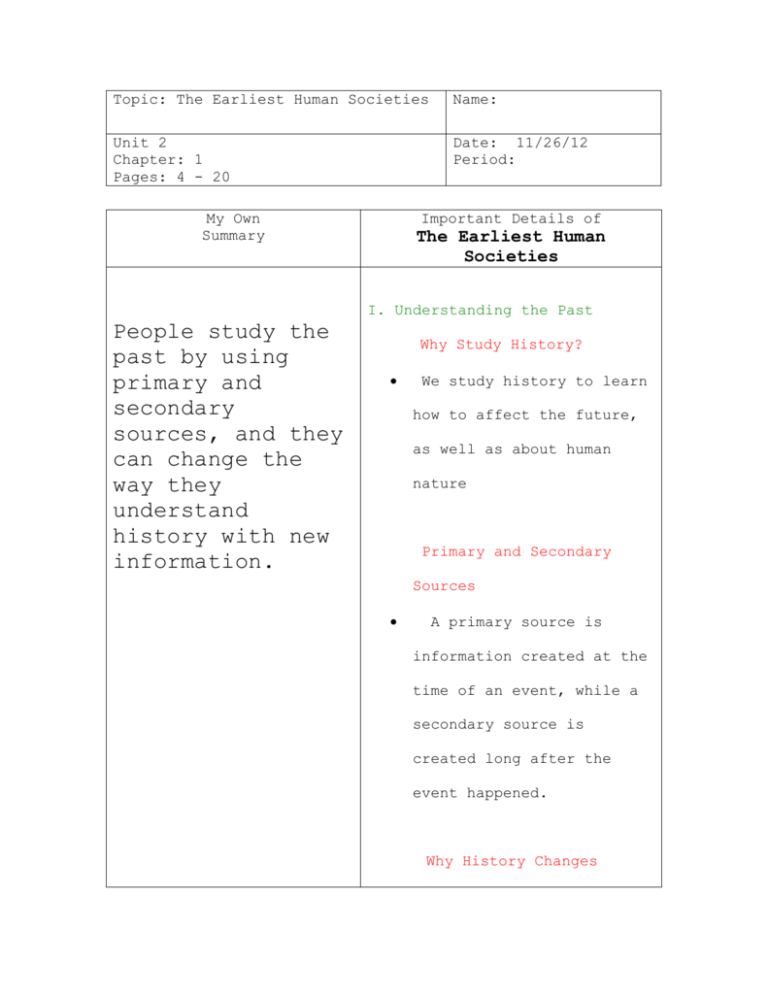
Topic: The Earliest Human Societies Name: Unit 2 Chapter: 1 Pages: 4 - 20 Date: 11/26/12 Period: My Own Summary Important Details of The Earliest Human Societies I. Understanding the Past People study the past by using primary and secondary sources, and they can change the way they understand history with new information. Why Study History? We study history to learn how to affect the future, as well as about human nature Primary and Secondary Sources A primary source is information created at the time of an event, while a secondary source is created long after the event happened. Why History Changes Historians can use different evidence or have different conclusions from the same information Early humans had to adapt to the environment by being hunters and gatherers, and they had to move a lot to follow their food source. II. Early Humans Were HunterGatherers Adapting to the Environment Early humans depended on nature for their food and shelter. Women gathered berries and men hunted Early Humans on the Move Humans migrated and were nomadic because they needed to get animals to eat. III. Developing Tools and Culture The Development of Humans created tools then discovered fire, and finally started to build a complete culture. Technology 2 million years ago humans started to make stone tools to hunt and make shelters easier. They made drills, axes and cutters. The Use of Fire ½ million years ago humans used fire to cook, heat and light their area, as well as protect against animals and make tools stronger. Early Human Culture Humans started culture by having art, language and religion. IV. The Beginnings of As temperatures got warmer, people could settle down in one place and control plants and animals (domestication). Agriculture Climate Changes Increased temperatures on the planet meant that humans moved to new places and could stay in one place because the growing season was longer and they had food. The Domestication of Animals They figured out how to tame and control animals by observing them for long periods of time. 9000 BCE The Agricultural Revolution Humans understood how to farm to by controlling seeds and plants starting around 8000 BCE. This also led to even more tools (technology). Topic: The First Communities Name: Chapter: 1 Pages: 4 - 20 Date: 11/26/12 Period: My Own Summary Important Facts of The First Communities I. Settlements Begin Farming Villages Develop People stayed in one place because it had good places to farm, and this led to surplus of food and supplies, which then led to specialization. Worldwide Farming started where there were bodies of water and fertile soil, but there were advantages (lots of food) and disadvantages (disease) to living in villages Surpluses Boost Development As farming improved, surplus (extra) food was created. There were also surplus materials and this allowed the village to have more people. People Develop Different Skills Since there was a surplus, people didn’t all need to farm. This allowed for specialization, or people having different jobs. II. Simple Villages Grow More Villages got more complex because people began to trade and specialize their work. Catal Huyuk is an example of one such village. Complex A Changing Way of Life Extra food and supplies meant people could grow their families (pop increase) and also trade, have social classes and start government. Life in Complex Villages Complex villages were those that had thousands of people (inhabitants) Catal Huyuk It is an example of a complex village, in Turkey, 9,000 years old.
